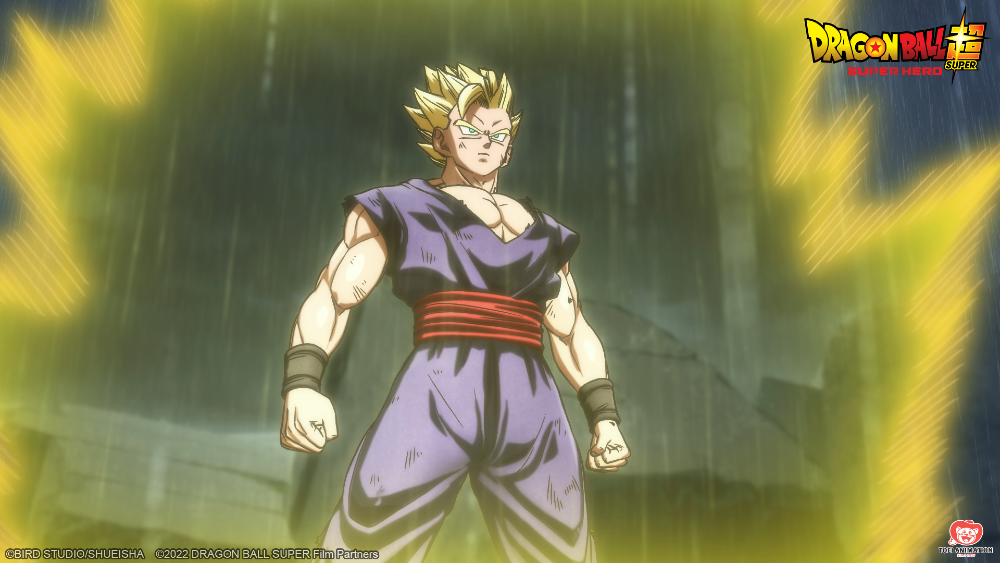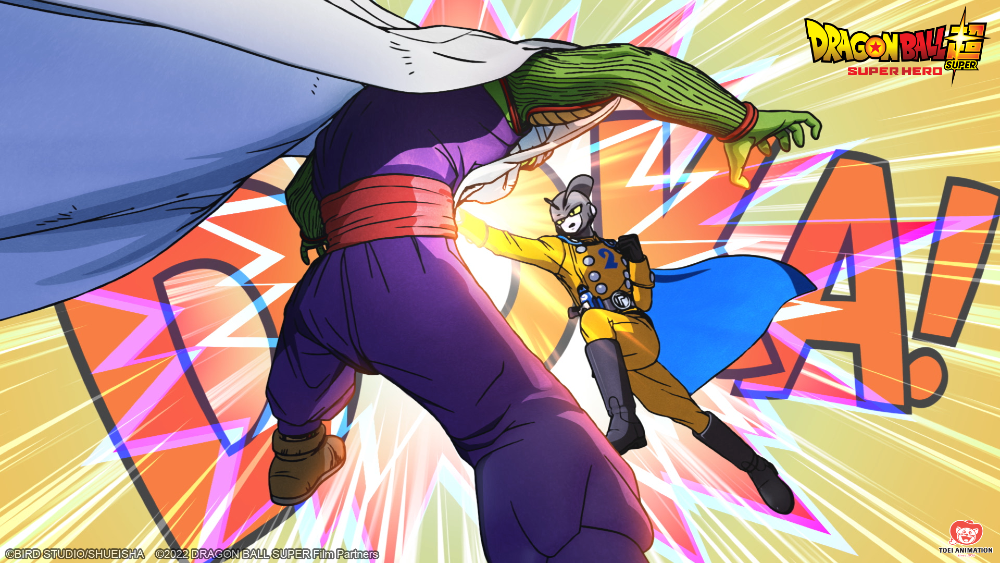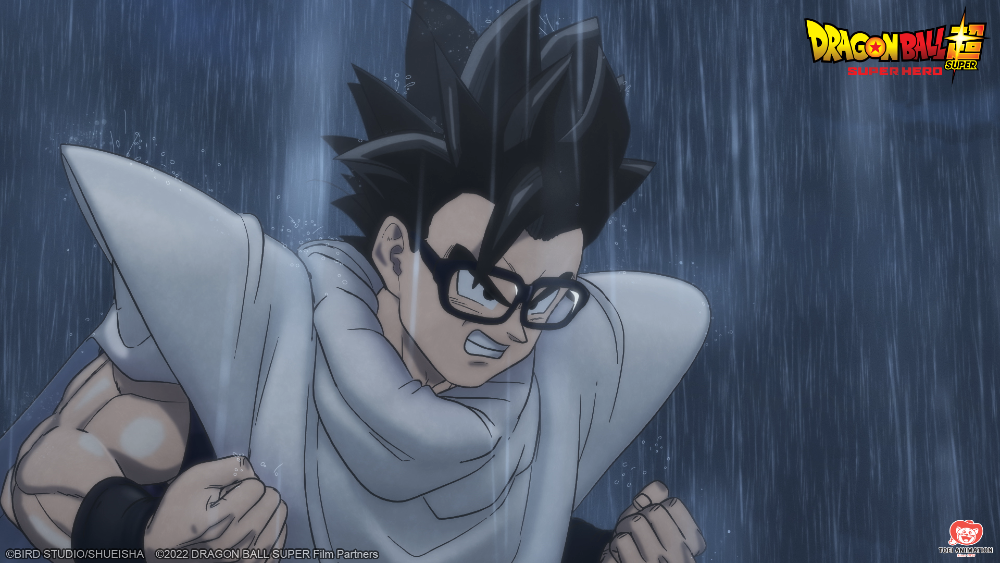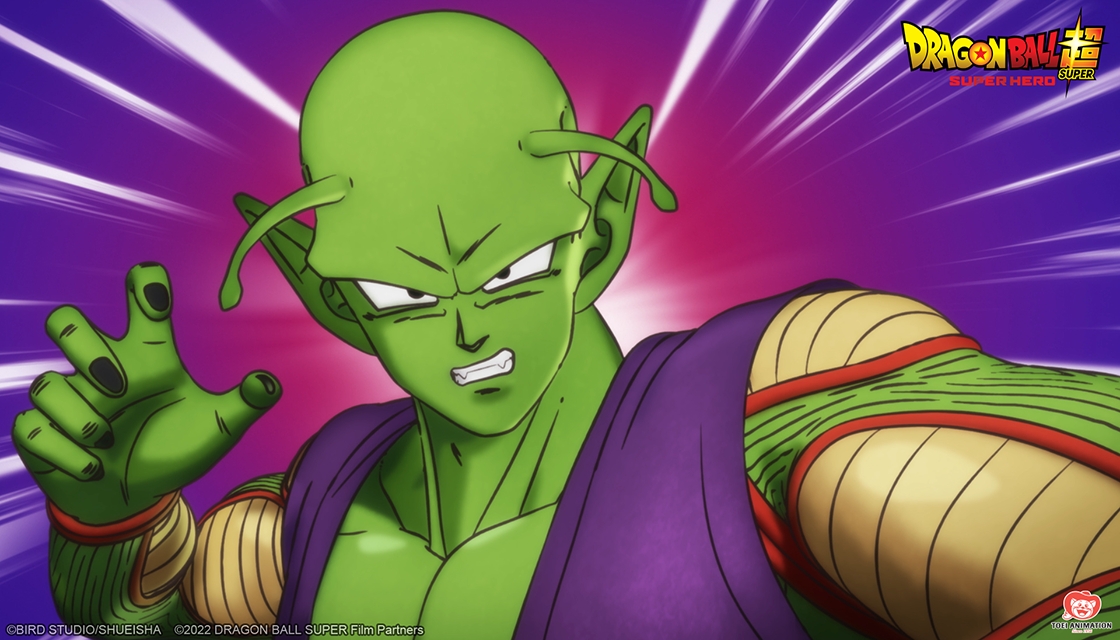There’s perhaps no anime more iconic worldwide than the Dragon Ball series. With this year’s new Dragon Ball movie finally out, Dragon Ball Super: Super Hero serves as a reminder as to why the show has remained so popular for so long, longer even than the tropes it helped to create.
The previous film, Dragon Ball Super: Broly, was a complete joy for fans as it took a beloved non-canon Dragon Ball Z story and reworked it into the current Dragon Ball universe. Broly’s godly animated battles, combined with featuring Goku’s birth and arrival as the prologue, make it a hard film to match. Naturally many fans wondered if this new 3D animated film, starring neither Goku, Vegeta, or Broly, would come close to the quality of its predecessor. Fortunately, throughout its one-hundred-minute runtime, Super Hero wisely takes a very different path and proudly stands on its own two feet.
First, let’s address the dragon in the room: The main thing you’ll notice about Super Hero off the bat is that it’s drawn in a 2.5D animated style, where 3D animation is used to sculpt a 2D animated cartoon illusion. The film’s animation style is drawn and colored intentionally with the look of a traditional cartoon but is obviously 3D-generated, similar to that of a videogame such as Fire Emblem: Three Houses or The Legend of Zelda: Wind Waker. This 2.5D style can become bombarding to the eye, as some colors are loud and stiff, while movements are very smooth, making some moments reminiscent of outdated video game cutscenes.

Super Hero counters this by putting emphasis on continuing with the older Dragon Ball art style. Comically proportioned villains are quickly introduced with their Saturday morning cartoon style head-to-body ratio, while cities, vehicles, and even bystanders, further the nostalgic narrative. Unexpectedly, I felt a sense of relief knowing that these brightly lit characters were still being drawn this way. These cartoonish properties would later provide a contrast to more terrifying enemies and moments, while also helping us suspend our disbelief.
This of course is more of a treatment than a cure to the animation’s peculiar uncanniness, but it does assure the viewers that the people in charge are aware of the benefits and shortcomings of the medium, putting in the attention and care to allow the film to bloom under its creative restrictions.
For a visual example of the pros and cons of this style, look no further than the clashes that take place in Super Heroes’ computer animated battles. The change of speed normally used to emphasize an attack in an anime fight now lacks “Oomph!’ as the motion blur is tamed by the overly smooth, perfect world of 3D animation. However, instead of covering it up, the film accepts this, allowing the camera to go wild in other ways, with a mayhem of zoom-ins, orbiting angles, slowdowns, and sometimes all within a single shot. Super Heroes does not hold back on giving us courtside seats to the action, even if it is not quite the same punchy fight scenes we are used to. Additionally, with each battle filled with leather smooth actions, there’s rarely ever confusion as to what’s going on. It gets even better in the final act when nightfall appears and darkness forces each bit of line art to blend in. The colors and attacks become natural looking to the point where, for a few moments, I actually forgot I was watching a 3D animated film.

Let’s talk about the story. The film kicks off with Hedo, a brilliant, young scientist, who is manipulated into believing that Goku and his friends are evil aliens. Hedo makes two powerful Androids, Gamma 1 and Gamma 2, to defeat them. But with Goku and Vegeta both unreachable in outer space, Piccolo realizes that Gohan, who’s never reached his true potential, is Earth’s only hope. Piccolo must find a way for him to get stronger and quickly. But how? Piccolo enlists the help of Gohan’s daughter, Pan, in a ploy that involves the Red Ribbon Army.
Perhaps the biggest payoff this movie achieved is through its “addition through subtraction” storyline technique. Though the film’s plot focuses on its less powerful side characters, such as Piccolo, Gohan, and Pan, it does a lot with these characters and their different points of view. Longtime fans will be pleased with the many references sprinkled throughout the film. And in fact, very few references exist without a purpose. Most of the references bring new developments and demonstrate that the best form of fan service isn’t just a nudge and a wink, but weaving old memories into new stories. All in all, with its micro level, down-to-earth point of view, it is only natural for the audience to empathize and root for any character on screen who shows a hint of decency, regardless of role or side.
I should warn you that, yes, this is a Dragon Ball film so expect the pacing to be slow and torturous. And, yes, the training scenes with Goku and Vegeta are completely unnecessary, only existing as a quick update and fan service. And, good lord, the first half is practically just an exposition to get everyone involved in the later battles. But just like Broly, the setup is worth the wait as the movie eventually rewards us with the best fan service possible: a well crafted story that reads like a love letter to the Dragon Ball legacy.

In summary, is Dragon Ball Super: Super Hero better than Broly? If Broly is the bringer of greater highs through greater risks, Super Heroes is the gift of a greater appreciation of smaller strengths. It’s a bit unfair to ask since they both seem to be made with two entirely different purposes in mind. If I had to choose, I’d probably say Super Hero, as a movie, edges Broly out. But as a Dragon Ball film? Broly takes the cake.
As one of the few kids who grew up in a household without cable television, I'd often question what sort of amazing, unforgettable memories I might have missed out on in regard to the anime shows that were airing at the time. Shows like Dragon Ball Z and Inuyasha really shaped a generation. These long-running shows, following the main hero over seasons, give a certain kind of reward, seeing the hero overcome impossible odds, and finally witnessing the main villain's long-awaited, epic defeat. Dragon Ball Super: Super Hero delivers a meaningful ending to a well-crafted story. By the time the credits rolled inside the theater, I’d like to think that a part of that wonder was answered for me.
SCORE: 5.0

